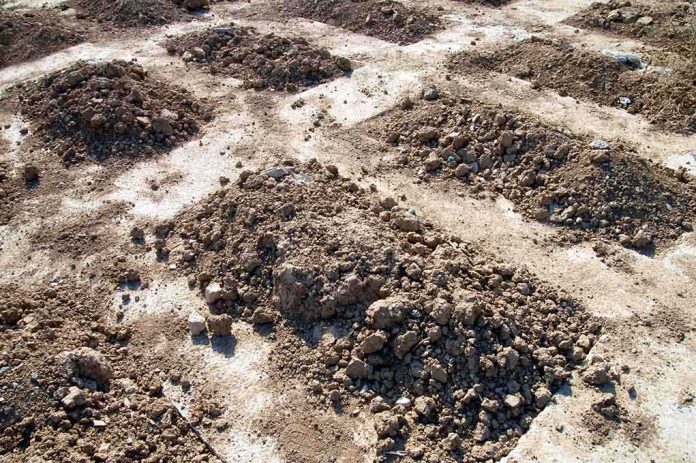
As ongoing war blocks aid and information, a catastrophic landslide in Sudan’s Darfur has erased an entire village, exposing the deadly toll of unchecked conflict and government collapse.
Story Snapshot
- A landslide in Darfur’s Tarasin village killed an estimated 1,000 people, with only one reported survivor.
- The disaster zone is controlled by rebels and remains largely inaccessible due to civil war and violence.
- Humanitarian efforts are blocked by conflict, compounding famine and displacement in the region.
- The tragedy highlights how man-made chaos worsens natural disasters and hinders relief.
Sudan’s Deadliest Landslide: Village Wiped Out Amid Civil War and Famine
Late August 2025, in the war-ravaged Darfur region of Sudan, a massive landslide triggered by days of torrential rain destroyed the village of Tarasin, reportedly killing nearly every one of its 1,000 residents. The area, situated in the Marrah Mountains and controlled by the Sudan Liberation Movement (SLM), is at the heart of an ongoing civil conflict. Initial reports confirm only a single survivor, with search and recovery teams able to recover about 100 bodies by Tuesday evening. This event stands as one of the deadliest natural disasters in Sudan’s modern history, made even more tragic by the near-total isolation of the region and the absence of effective government response.
The landslide’s aftermath is a grim testament to the intersection of natural and human-made crises. The Marrah Mountains, a traditional refuge for civilians fleeing violence, have become densely populated as the civil war between the Sudanese Armed Forces (SAF) and the Rapid Support Forces (RSF) drags on. Seasonal flooding is common, but climate change has intensified the scale and frequency of these disasters. With the region already facing famine, displacement, and economic ruin, the destruction of Tarasin piles tragedy atop tragedy. Inaccessibility due to rebel control and ongoing violence prevents outside authorities and aid agencies from reaching those in desperate need, leaving survivors in surrounding communities at extreme risk.
Conflict, Blocked Aid, and the Erosion of Civil Order
Local rebel authorities, notably the SLM, were the first to report the devastating death toll and to call for international assistance. The United Nations and International Organization for Migration have tried to mobilize aid, but security threats and lack of access have stalled their efforts. Meanwhile, the Sudanese government and rival armed groups remain preoccupied with ongoing conflict, failing to prioritize or facilitate humanitarian relief. This disaster underscores how civil unrest and the breakdown of government not only erode the basic rights and safety of citizens, but also paralyze disaster response and recovery. The lack of reliable communication and infrastructure in the Marrah Mountains has left families uncertain about the fate of loved ones, amplifying the suffering and trauma of affected communities.
The compounded effects of war, famine, and displacement continue to devastate the region. Experts from the United Nations and humanitarian organizations emphasize that natural disasters like this landslide become deadlier in areas destabilized by conflict and government incompetence. The destruction of Tarasin has erased a community known for citrus farming and further eroded the region’s fragile social fabric. Pressure is mounting on both local rebel leaders and Sudanese authorities to allow for the safe passage of aid, but as of now, the international response is hamstrung by lawlessness and lack of cooperation.
Broader Consequences: Why This Disaster Matters for American Values
While Sudan’s tragedy may seem distant, it should serve as a stark warning about the dangers of unchecked government overreach, civil conflict, and the erosion of civil society—threats that undermine the very principles of order, liberty, and security. The same forces that block aid and information in Darfur are at work wherever bureaucratic chaos and disregard for individual rights take root. The U.S. Constitution was designed to prevent such breakdowns, ensuring that the government remains accountable and responsive to its people. As conservative Americans, it is crucial to remain vigilant against any policies or agendas—foreign or domestic—that threaten the rule of law, family stability, or the basic rights of citizens. The disaster in Sudan is a tragic illustration of how quickly society can unravel when those principles are ignored.
Sources:
Sudan landslide kills more than 1,000 people and wipes out entire village
Sudan: Landslide wipes out entire village in Darfur, killing up to 1,000 – UN News
Sudan’s latest tragedy counts a village wiped out by landslide, with over 1,000 dead














